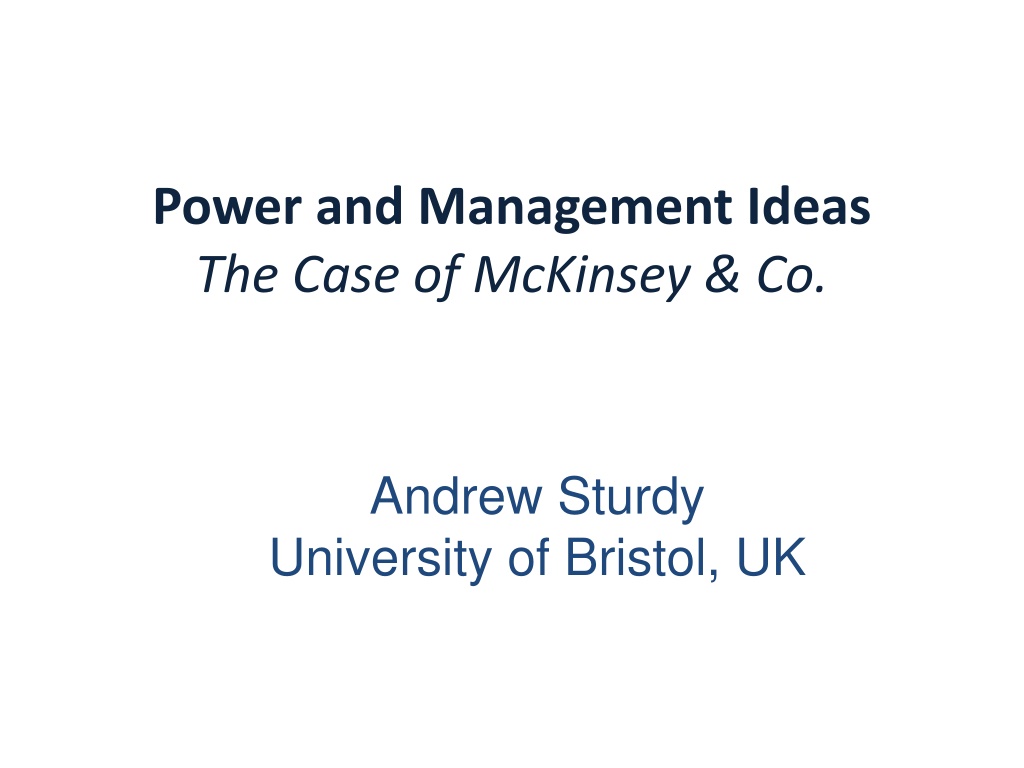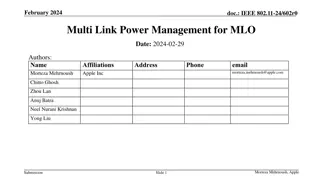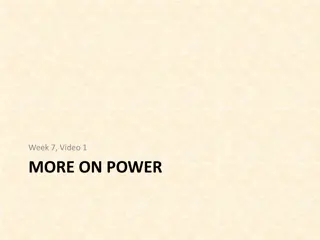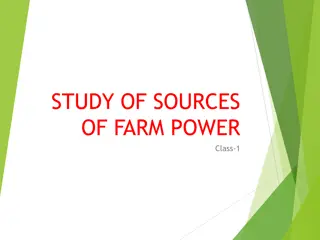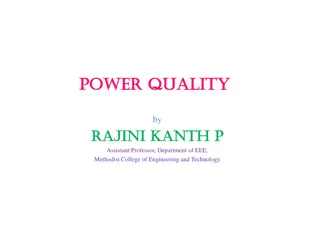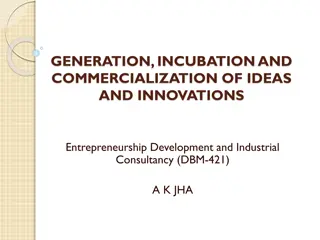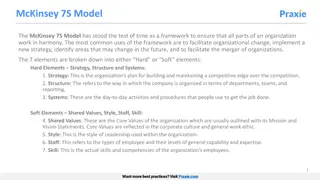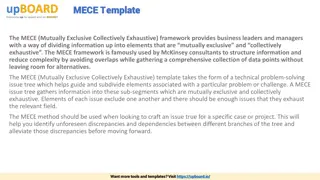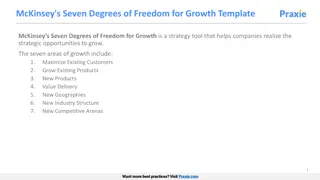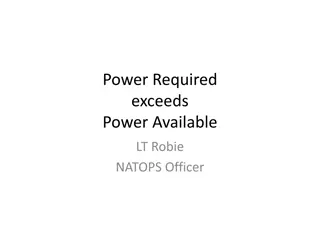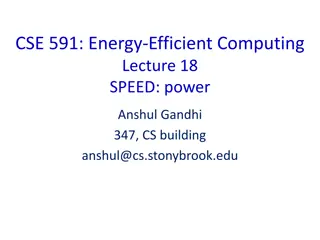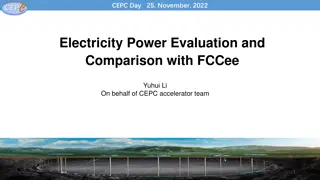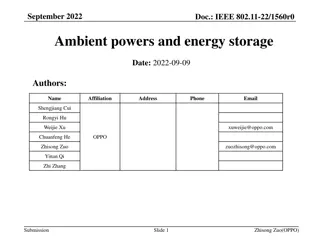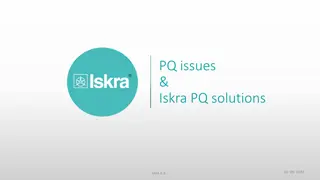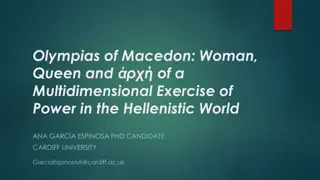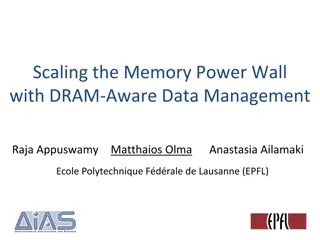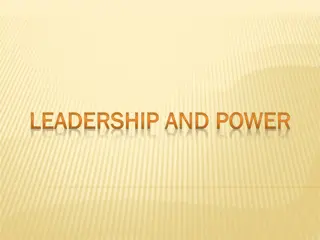The Power and Management Ideas: The Case of McKinsey & Co.
Consultants like McKinsey play a crucial role in disseminating and legitimizing ideas in various sectors and geographies. This article explores the intricate relationship between power, politics, and change, highlighting the challenges and opportunities associated with managing change stakeholders. It delves into why consultants hold significant power in shaping business strategies and fostering innovation, using McKinsey as a prime example of an influential consulting firm.
Uploaded on Sep 27, 2024 | 0 Views
Download Presentation

Please find below an Image/Link to download the presentation.
The content on the website is provided AS IS for your information and personal use only. It may not be sold, licensed, or shared on other websites without obtaining consent from the author. Download presentation by click this link. If you encounter any issues during the download, it is possible that the publisher has removed the file from their server.
E N D
Presentation Transcript
Power and Management Ideas The Case of McKinsey & Co. Andrew Sturdy University of Bristol, UK
The man who knew all about politics and change! There is nothing more difficult to take in hand, more perilous to conduct, or more uncertain in its success, than to take the lead in the introduction of a new order of things, because the innovator has for enemies all those who have done well under the old conditions, and lukewarm defenders in those who may do well under the new Machiavelli: The Prince (1446 1507) 2
Power and politics as inevitable Power as a latent capacity (power over/to) and politics is power in action Managing change is about stakeholders and change agents/recipients need to be politically skilled But is being actively political legitimate? In short, a unitary view or faith in rational logic are not helpful 3
Why are Politics and Change Linked? Change Uncertainty Competing Definitions/Rationalities Resource Reallocation Opportunities/Constraints Winners/Losers Competition/Conflict Defensiveness/Resistance Limited Role for Rational Decision-Making
Introduction why consultants, ideas & power? Consultants are agents of ideas - Capitalism s commissars ? (Thrift, 2005), masters of the universe dangerous company Generate, package, disseminate and/or legitimate ideas (e.g. M- Form, strategy, privatisation, international devt too) Through client change projects, but much more broadly Publicity, thought leadership, the consulting diaspora As a role model of best practice Ideas need power to move and take root Innovations/ideas do not sell themselves but require opinion leadership from those in a system who possess power, status or technical expertise (Rogers, 1995) Who this might be varies according to context situation, country, period so consulting is important and power is needed for ideas to flow take the case of McKinsey
Introduction why McKinsey & Co.? Consultants - Masters of the universe , dangerous company or business healers McKinsey - an extreme case sectors, geographies and ideas McKinsey s ability to take an idea and then leverage it up, using its brand and organizational effectiveness through an essentially industrial style process, made its consultants far and away the most effective disseminator of ideas via the consulting process (McDonald, 2013: 289) Highly visible and controversial Enron, Gupta, NHS Headlines Restricted mckinsey paper portrays grim future for health service A bold strategy for autism spectrum disorder and intellectual disability. Developed with the support of. McKinsey &. Company. October, 2014 Dominance threatened a crossroads? Also resisted New consulting models and market demands?
Power why Lukes? Many choices and theories Resource, networks/links and language/discourse French and Raven , ANT, Bourdieu, Foucault etc Chose Lukes Power A radical view Some limitations (e.g. excludes non-sovereign power beyond individuals, and unintended effects and interrelationships) but A composite theory - combines different forms of power Tried, tested and adapted (1974 and 2005) Used in studies of innovation and still influential (e.g. Fleming and Spicer, 2014)
Lukes (1974/2005) made simple? Power Type Control Resistance Hire/fire, access to rewards, expertise, networks & credibility Overt, behavioural compliance & cynicism. Resource (material and symbolic) in direct conflicts Labour market (e.g. professions); voting restrictions; informal in/exclusion (de-union). Getting around controls (e.g. informal influencing) & exerting rights (e.g. shareholder activism) Process - Deciding game/ rules & participants in conflicts ( non-decisions ) Lobbying; thought leadership , culture management; subjectifying discourses (e.g. strategy). Exposure to alternative or counter-discourses and associated social systems. Meaning - Shaping wants in de-politicised (non- conflict) contexts (hegemonic an effect)
Overview McKinsey Vignettes - brief McKinsey, power and resistance - overview Conclusions need to focus on power and consulting Useful sources (based on forthcoming article in Management Learning, with Joe O Mahoney)
Vignettes of management ideas One methods-based, one sector- specific & one as role model Professional consultant and manager The war for talent Healthcare privatisation
#1: The Professional Consultant/Manager (only partly intentional effects) Early professionalisation of consulting Mckinsey then Bower Legitimation by imitation (accounting/law) & associations (Uni. Chicago/HBS) In USA, helped form the Association of Consulting and Management Engineers (ACME): keeping the scoundrels out (high volume low cost). Appearance/comportment: a Porsche sports car, a house in a fashionable suburb, ski vacations and regular visits to art galleries (Kipping) the Borg (Star Trek). Institutionalisation up or out creates alumni network Harvard MBAs Case-interview: analysis & persuasion as the McKinsey Mind The new manager...? The brash high flyer, adept with the language of MBA programmes and big league consultants, parachuting from one change assignment to the next (Grey, 1999) ie much like McKinsey consultants
#2: The War for Talent / Forced Curve Ranking System (FCRS) - Rank and Yank Thought leadership (e.g. books/reports) High fee/Low utilisation model Connection with CEOs (e.g. Enron 15% go p.a.) Discourses: Parables, Evolution, Games. The War for Talent & the FCRS Links with Harvard Business Press Borrowed from G.E. & others.
#3: Healthcare Privatisation Political agenda Long tradition of support for the market/private sector (McDonald, 2013) Promotion of neo-liberal: cost-cutting, privatisation, deregulation Think-tanks (MHI, King s Fund etc ) 2011: 30% employers to cease health insurance cost Obamacare $ NHS Early involvement / promotion of privatisation - thought leadership (conferences, publications, reports) Drew-up foundational documents & designed regulator (Monitor) structure (& CEO) (Q) Key placements: policy advisors, hospital CEOs (revolving doors with civil servants) Institutes - MHI: research from private sector 139m data-points .
Forms of Power & McKinsey Resource ($, people, network, kn) (focus of consulting literature) Process (agenda set, alumni, exclude) Meaning (thought lead, normalise mcy, USA/profn links) Professional Consultant Finance for elite lifestyles; time for leverage strategy; skills (e.g. persuasion) Recruitment from elite ; gatekeeper to AMCE; then non- participation in professional bodies to restrict prof. accred. Institutionalisation of McKinsey best practices ; mystique; cultural controls in firm War for Talent / FCRS Skill & time to generate research; client network; reputation; implementation; Privileged access in Enron; link with Harvard Business Press; Rhetoric discourse of A-players , Parable of the Talents , war ; Deregulated Healthcare Finance & time for conferences & think- tanks; salaries to tempt key decision-makers Revolving doors; writing framework / procurement documents; Agenda setting think- tanks; shaping research politically; using neo- liberal & science discourses;
Limits/resistance not all powerful nor all McKinsey The professional consultant / new manager Borrowed ideas from elsewhere (eg, law, accounting, IBM) Modern shift away - work-life balance ? Client push-back re young MBA consultants Alternatives (SM, process, IT & new models Eden McCallum, ICG, consultant managers) The War for Talent & FCRS Association with Enron (15% go p.a.) Alternative discourses (e.g. unions) Scientific invalidity (Azure 2013, Gladwell 2002) Privatised Healthcare (USA, UK) Questions in Parliament Critique & counter discourses in the press (NHS and Obamacare), but critique can add to mystique Overstatement of influence?
McKinsey at a crossroads? (see also McDonald The Firm, 2013) Growth brings coordination problems re culture and consistency? Was a great partner to the industrial era (vs Apple, Google etc) Clients now focused more on results & the short term than strategy and relationships Suit emerging big markets (eg BRICs)? New talent less attracted to large, old firm Survive more scandals? Subject to pressures in consulting more widely widely available knowledge; other business models (HBR 2013)
Conclusions & Questions Ideas and practices need power and consultancy is all about power - as role model, in projects, but beyond.. Have we simply reinforced a popular image? Success / failure highly contingent Context both enables & constrains Questions What can we learn from McKinsey as positives and to avoid? How else are ideas spread? Who should be involved? Where is power legitimate? Can we escape its use? How can we improve on Lukes a 4th frame?
Useful Sources Based on O Mahoney, J and Sturdy, A (forthcoming) Power and the diffusion of management ideas: The case of McKinsey & Co. . Management Learning. Christensen CM, Wang D and van Bever D. (2013) Consulting on the Cusp of Disruption. Harvard business review: 106-115. David RJ, Sine WD and Haveman HA. (2013) Seizing opportunity in emerging fields: How institutional entrepreneurs legitimated the professional form of management consulting. Organization Science 24: 356-377. Edersheim EH. (2010) McKinsey's Marvin Bower: Vision, Leadership, and the Creation of Management Consulting: Wiley. Fleming P and Spicer A. (2014) Organizational Power in Management and Organization Science. The Academy of Management Annals: 1-73. Greenpeace. (2011) Bad Influence: How McKinsey inspired plans lead to rainforest destruction. Amsterdam, 1-40. Kipping M. (1999) American management consulting companies in Western Europe, 1920 to 1990: Products, reputation, and relationships. Business History Review 73: 190-220. Lukes S. (2005) Power: a radical view: Palgrave Macmillan. McDonald D. (2013) The Firm: The Story of McKinsey and Its Secret Influence on American Business, New York: Simon & Schuster. McKenna CD. (2006) The World's Newest Profession: Management Consulting in the Twentieth Century: Cambridge University Press. 10. Sturdy, A J., Handley, K., Clark, T. and Fincham, R. (2009) Management Consultancy Boundaries and Knowledge in Action. Oxford: Oxford University Press. 1. 2. 3. 4. 5. 6. 7. 8. 9.
